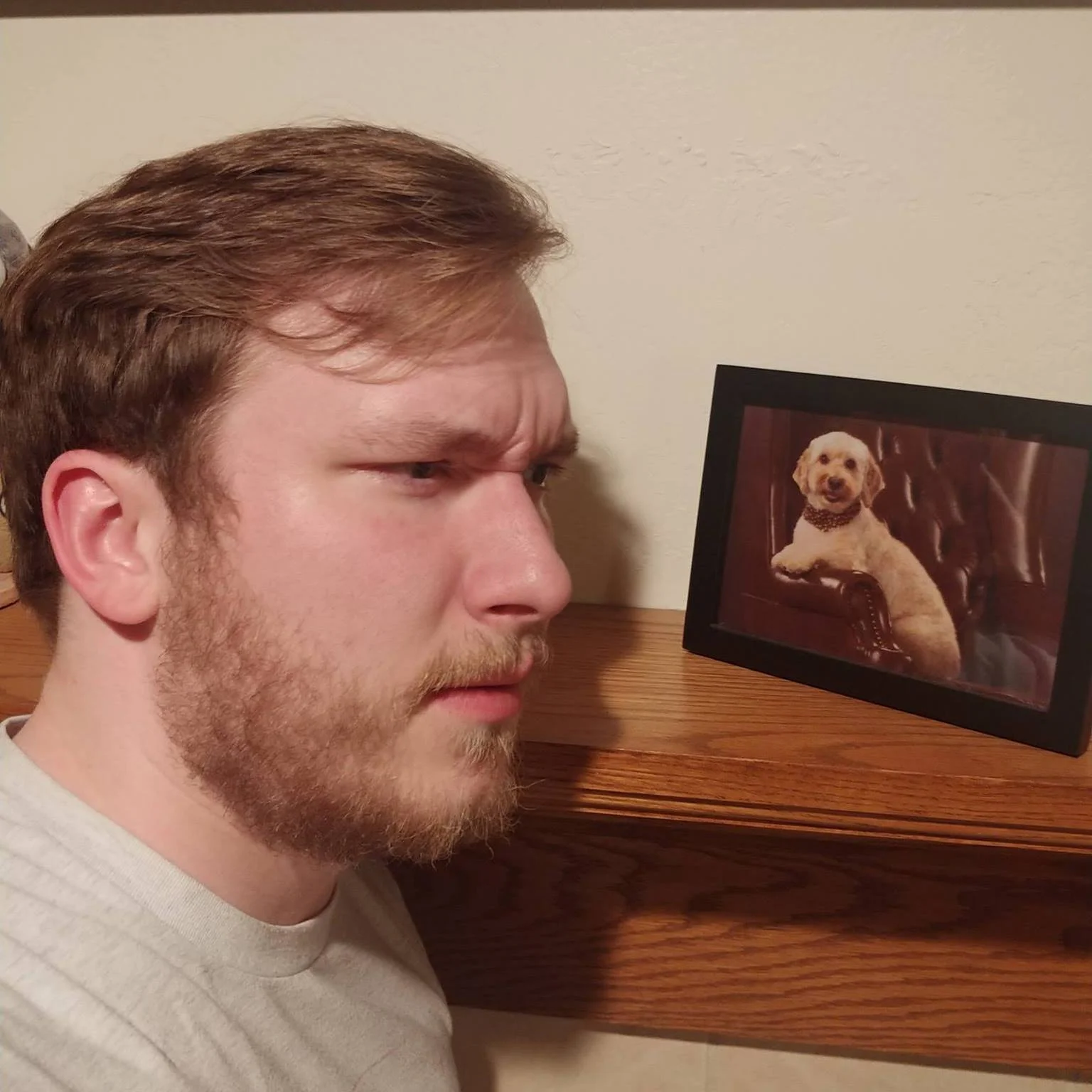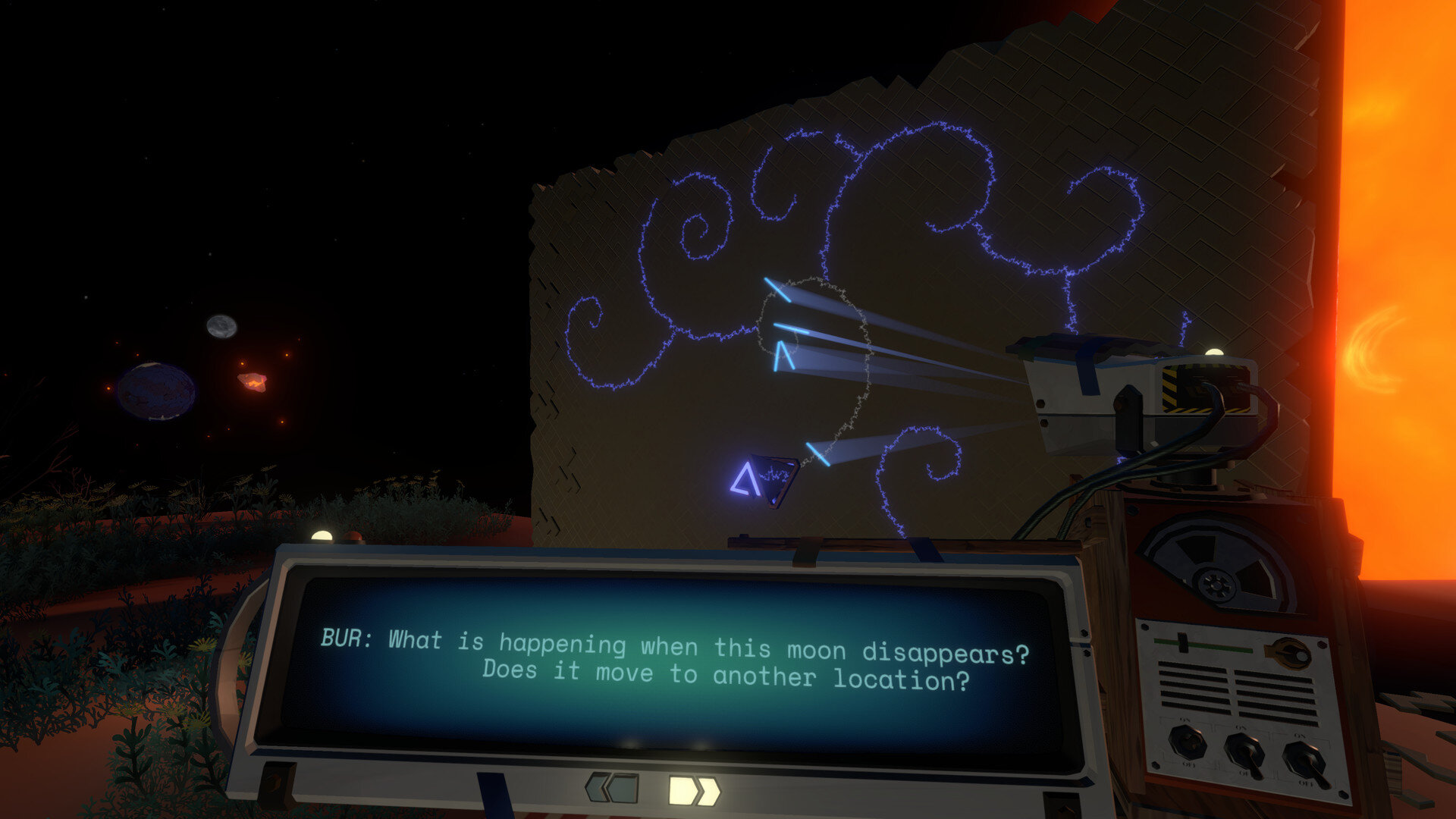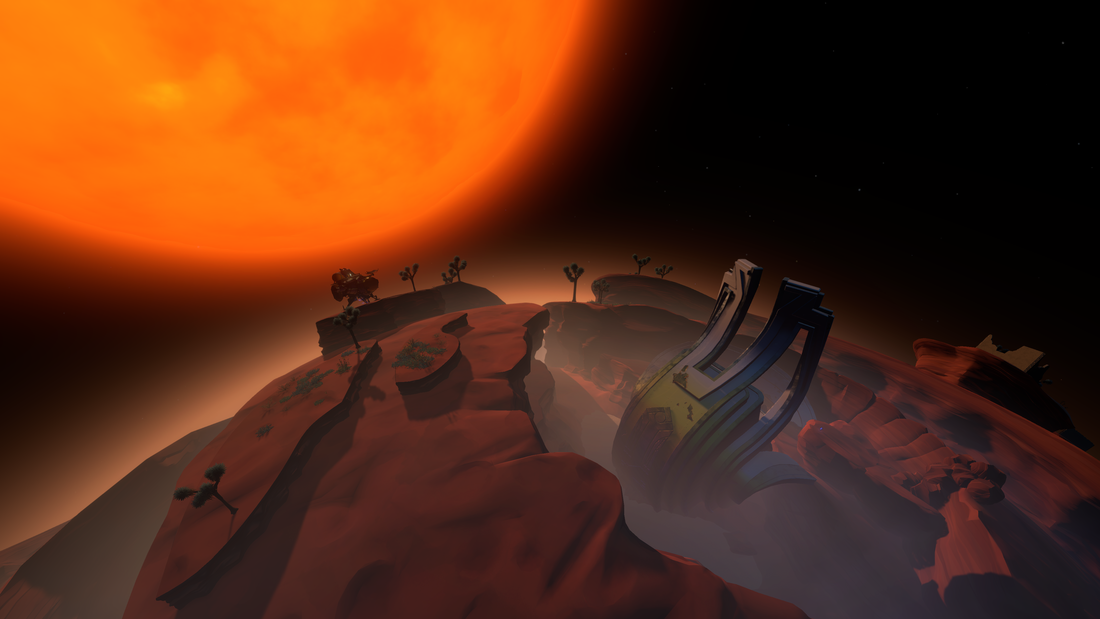2019's Game of the Year: Outer Wilds
I’ve had an empty Google Doc in my Drive for seven months, titled “Words About Outer Wilds.” It haunts me, in ways the game in its title does as well. Every time I try to make words appear in that blank space, I fall short, because there’s so much I want to say about it, and so much that I can’t talk about without spoiling the surprises of what that game is. The highs, the lows, the shock and awe of what it wants to do and what it brutally, unflinchingly succeeds at.
We’re going to give it a shot, but I can, at the very least, sum it up like this: Outer Wilds is my game of the year. It’s one of the best games I’ve ever played, and it is a game I wish I could forget about so I could experience it for the first time again. It’s a beautiful, haunting densely-packed clockwork world that unfolds and unwinds itself impossibly well. It’s a game with themes and motifs that will stick with me forever.
“OUTER WILDS
EGS, Xbox One, Playstation 4”
On its surface, it’s a very easy game to pitch: You are a member of Outer Wilds Ventures, a spacefaring exploration society nestled in the tiny planetoid of Timber Hearth, which resides in a small solar system caught in a 22-minute time loop. You set out in a rickety, gas-powered wooden spaceship to see the sights and try to discover the nature of the Nomai, an ancient precursor race. At the end of the loop, the sun explodes in a violent supernova, the solar system is consumed, and you are sent back to the start. It’s a straightforward premise, but Outer Wilds is so much more than that.
Outer Wilds is about the quiet between moments in time. It’s a game that deals in the mundane details of space travel, worrying about your velocity as you flutter from planet to planet. It’s leaving the atmosphere of one planet to see the rest of the solar system in profile before you, your scanner picking up the distant twang of a banjo on the other side of the sun. It’s sitting on the surface of a planet, watching a colossal column of sand float upwards towards its twin, the two rotating around each other in harmony.
Outer Wilds is about music. Each member of Outer Wilds Ventures carries their own instrument with them, and the solace that comes with hearing the twang of a banjo or the inviting chirp of a harmonica in a cold, unflinching solar system cannot be diminished. Every loop ends with a pulsing, brooding synth piece that still makes me slightly tense up when I hear it: it is the single most haunting piece of music I’ve heard in a game this year. The musical themes and motifs within Outer Wilds are as recurring and important to the world as the loop itself, and the ways they build on and reflect each other are managed so well throughout your travels.
Outer Wilds is about mystery. There is so much to discover within this small, handcrafted solar system, and much of your time is spent galavanting about in search of answers. Who were the Nomai? How did they end up here? What’s going on with this time loop? Am I the only one aware of what’s happening? Can I put a stop to this? What changes, what stays the same, what am I missing by arriving somewhere too early or too late?
Outer Wilds is about exploration. It is an intensely personal affair, as you go through the ritual of riding the elevator up into your spaceship, putting on your spacesuit, and rocketing off into space. You meet other members of your company, and they’re all willing to spare a moment or two for conversation over marshmallows. You’ll delve into ancient observatories, the hollowed-out shells of comets, and trek across wildly distinct, beautifully realized planetoids. Each and every location within the system feels original and separate from each other, from the horrifying, tornado-wracked oceans of Giant’s Deep to the quaint, humble woodlands of Timber Hearth and the moody, fog-ridden maze of Dark Bramble.
Outer Wilds is about sorrow. The solar system is an inherently forlorn place, littered with scattered remnants of the Nomai. The inevitability of the loop’s end, the panic that sets in when you hear the telltale song indicating the imminent supernova. The world feels lived-in, and largely forgotten by its inhabitants, in the truest sense of the word: there is so much to discover, and so few people left to discover it.
Outer Wilds is about the “Eureka” moment. There are no progression mechanics to be found, and the only thing that blocks you from embarking on your final voyage is the knowledge you gain from each loop, the ways in which you piece together the mysteries of the Nomai, the Loop, and the solar system you travel through. For a non-linear story, those moments are plentiful, powerful, and profound, and the number of times I let out genuine gasps of realization is too high to count. Much like puzzle-box games like FEZ or The Witness, Outer Wilds revels in letting the player discern their own ways through the world, offering no hard signposts in terms of directing them where to go. Every bit of knowledge gained is a victory, and the biggest reveals are all ones you come to organically.
Outer Wilds is about life. You will die, time and time again, but never permanently. It is a world that begs to be cherished. The plucky Hearthians idle their lives away on Timber Hearth. Gabbro lounges on his hammock, playing his flute and meditating. Messages left behind by the Nomai are full of pleasant, affirming conversation, showing a softer, genuine side when normally “precursor races” are considered haughty, dismissive and omnipotent. Even setbacks present paths to refine your future trips, and nothing ever feels too far out of reach.
Outer Wilds is about death. You will die, time and time again, in ways both intentional and accidental. Your landings will come in hot, and your ship will shatter against the hard surface of Brittle Hollow. You’ll forget to put your space suit on and step out into the inky black before realizing it. The tension of Dark Bramble will get to you, you’ll fly a little too fast and awaken the beasts slumbering within. You’ll miss your target, veer wildly off course, and be forced to make peace with the cosmos as your remaining oxygen slowly whittles down to nothing, the last panicked breaths of this iteration of You louder and louder before you finally wake up again in the soft glow of a Timber Hearth campfire.
There are plenty of things I could say in more explicit detail that I think would categorically diminish the profound revelations that are waiting to be discovered by finding your own way through the solar system. It’s a game that affected my worldview for the better, in ways that a game never has before. It’s something that moved me to tears well before a powerful, sweeping ending that left me genuinely speechless. Outer Wilds is one of the best games I’ve ever played. It is my game of the year, and even as I type this, I can’t believe something so pure, so refined, and so genuinely heartfelt exists.
You should play Outer Wilds. It is so much more than I thought it would be, and I am better for having played it.











